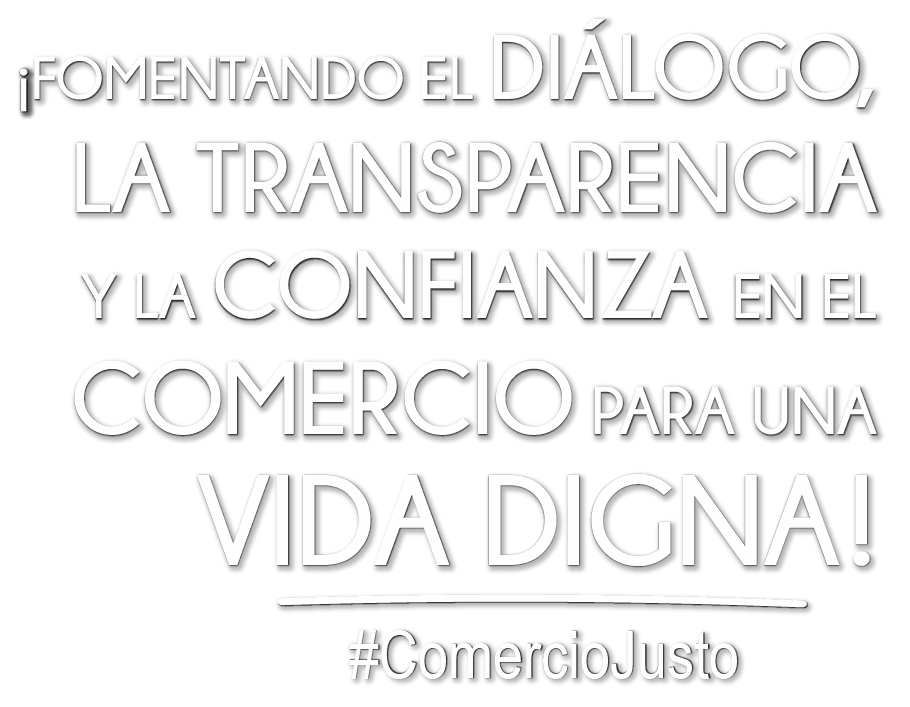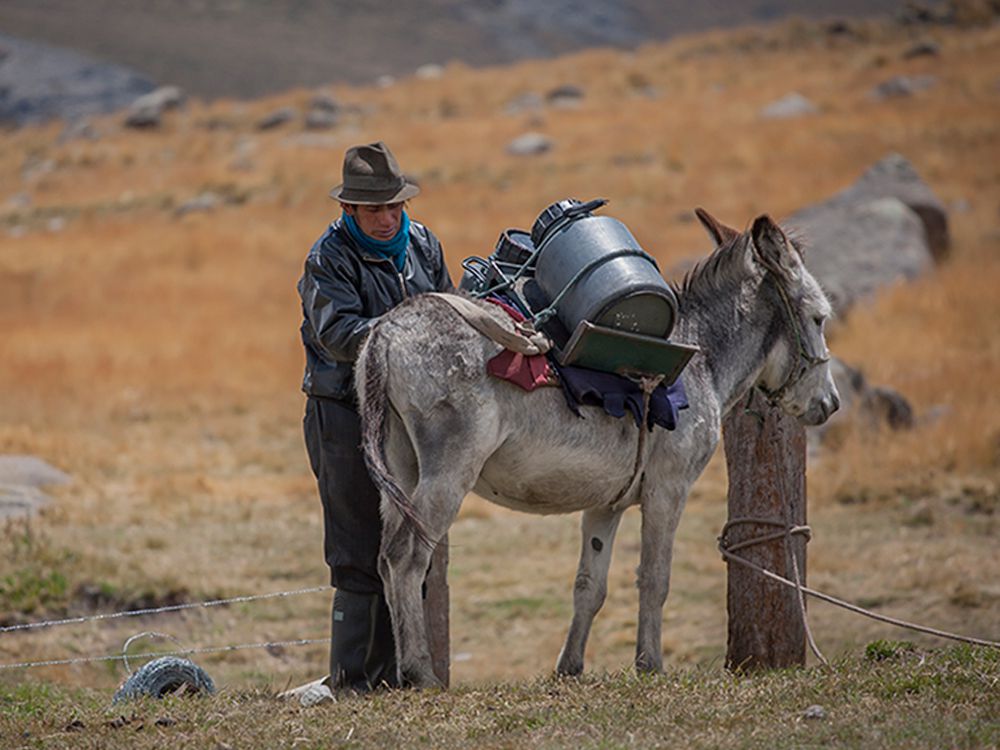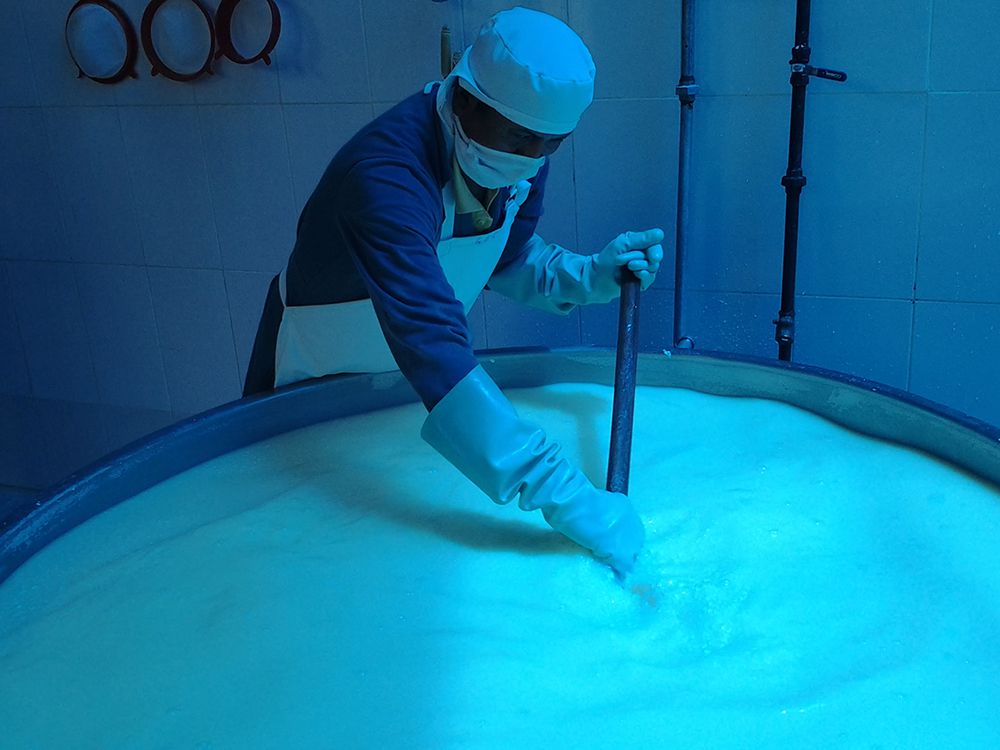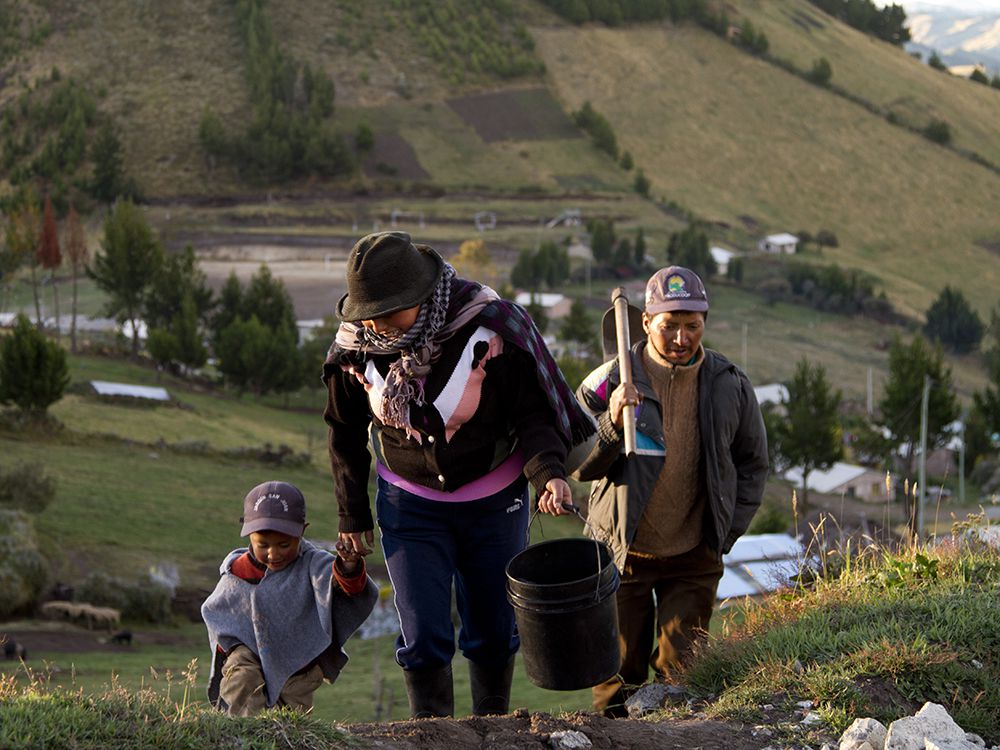FUNCONQUERUCOM
Fundación Consorcio de Queseras Rurales Comunitarias
Nowadays, FUNCONQUERUCOM articulates more than 30 community cheese manufacturing plants installed in 4 provinces of Ecuador (Bolívar, Cotopaxi, Chimborazo and Pichincha). As a whole, these factories process around 30,000 liters of milk per day to produce 3,000 kilograms a day of great and delicious cheeses of different types, as well as butter. The milk is delivered by around 1,200 small farmers organized around these cheese factories to which the Consortium, together with other organizations of the Salinero system, permanently advise and train in different aspects: technical, productive, sanitary and administrative.
Peasants make their living from livestock. Several of them, or their relatives, have carried out studies or have received hands-on training by a team of technicians and cheese promoters of the Salinerito system in cheese technology and administration. In this way, they have joined to work in the cheese community factories, in the packing centers and they also carry out the transportation of the products.
The Consortium markets the production of cheeses and other dairy products elaborated in those manufacturing plants, as well as the entire varied range of products of the Salinerito community peasant brand. It does so through its vendors and different commercial channels such as: neighborhood stores, restaurants, supermarkets and large stores in Pichincha, Sierra Norte and Galapagos. In addition, the Consortium owns 3 stores in Quito, in Santa Clara, La Floresta and El Batán neighborhoods, as well as an online store (www.salineritotqb.com). It maintains commercial alliances with several private stores.
Under the approach of a Social and Solidarity Economy and Fair Trade, the Consortium manages its commercial activity taking care that the value paid by the consumer for Salinerito products boosts the economy of all the links of the solidarity chain of production, transformation, and commercialization, thus contributing to the maintenance and creation of sources of decent work in the places of production, seeking a direct positive impact on the peasant economy.
Tiendas Queseras de Bolívar
TQB
June 16, 1978 is a memorable date. It marked the beginning of the cheese production in Salinas with 53 liters of milk per day, delivered by 5 producers at 3 sucres per liter (sucres is the former currency of Ecuador, equivalent to 0.00012 USD). It soon increased to 396 liters and for a time it stabilized at 350 liters, delivered by 46 milk producers receiving 4.1 sucres (0.000164 USD) for every liter of milk.
As of December 1979, with four trained cheesemakers working on the project, the Salinas cheese factory was already processing 700 liters of milk per day, delivered by 104 partners at 6 sucres (0.00024 USD) per liter. 20% of the production was sold locally and the remaining 80% in Quito, in the store.
In this way, a month after the first cheese factory was installed in Salinas, it was also opened in Quito, a store to stock and sell cheeses, the "Tienda Queseras de Bolívar". A few days before, but especially when the store was already in operation, Mr. Dubach addressed his efforts to train the staff so that they can deliver great customer service to their clients.
"Four months after Mr. Dubach arrived, the "Salinerito" cheese was already on the Quito market, gradually gaining the fame that continues to characterize it as one of the best cheeses in the country" (José Tonello 1988)
In this way, a month after the first cheese factory was installed in Salinas, it was also opened in Quito, a store to stock and sell cheeses, the "Tienda Queseras de Bolívar". A few days before, but especially when the store was already in operation, Mr. Dubach addressed his efforts to train the staff so that they can deliver great customer service to their clients.
"Four months after Mr. Dubach arrived, the "Salinerito" cheese was already on the Quito market, gradually gaining the fame that continues to characterize it as one of the best cheeses in the country" (José Tonello 1988)
Tomado del libro "Las Queserías Rurales del Ecuador"




